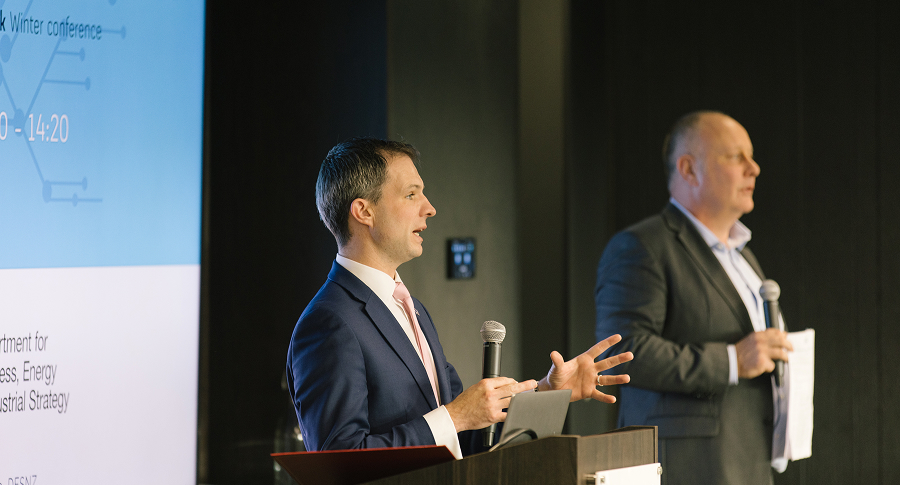At the start of this year, I was invited to provide oral evidence at the House of Commons Environmental Audit Committee inquiry into ‘enabling the sustainable electrification of the economy’. I provided evidence on two key topics: how the planning system can be improved and the role of community engagement and benefits.
Last week the committee published the findings of the inquiry. I’m pleased to see that the report has taken forward a lot of the recommendations that we’ve been calling for at Regen, including in our latest publication on this topic. Below I’ve summarised and reflected upon the committee recommendations related to planning, community engagement and community benefits.
Planning
The committee report recognises the significant challenges faced by local authorities in managing the volume of planning applications necessary for the rapid expansion of clean energy infrastructure as well as highlighting fundamental issues with the planning system. I’m pleased to see the following points being raised:
- Resources and skills: The report urges the government to ensure adequate resources and skills development are provided to local authorities to prevent the planning system from becoming a bottleneck. It emphasises the need for ring-fencing of finances for local authorities to achieve this. I would add to this the need to review the pay and career progression opportunities for local authority planners.
- Training: The report recommends the development of a training programme to equip planning authorities with the necessary skills for timely and well-considered planning application decisions for electricity infrastructure. While this is a positive and important suggestion, I would also suggest the potential to explore renewable energy specialist roles.
- Changes to planning policy: The committee states that it is “not convinced that the current design of the planning system is adequate to balance local concerns and interests against the need for rapid rollout of electricity infrastructure”. It notes the need to review planning policy to align the Nationally Significant Infrastructure Projects regime with the National Planning Policy Framework. It also recommends reviewing the onshore wind planning policy and developing measures to prioritise rooftop solar and mandate the delivery of solar generation in all suitable new-build properties.
Community engagement
The committee’s report underscores the importance of early, effective and meaningful community engagement, describing it as essential. It has two key recommendations on this topic:
- Public engagement strategy: The report advises the government to develop a public engagement strategy to communicate both the need and benefits for electrification and the infrastructure that will be required to achieve it. This wider engagement is something that Regen has also been calling for.
- Best practice in developer-led community engagement: The report also recommends that ministers develop guidance for developers and local authorities on best practices in community engagement. Such guidance could have a useful impact in terms of ensuring that engagement goes beyond tick-box exercises.
Community benefits
To ensure positive public participation and acceptance, the committee highlighted the necessity of well-designed community benefits and early engagement on why projects are necessary. They also note the potential negative impact that badly designed community benefits can have, something my research has identified. The key committee recommendations are:
- Community benefits for transmission infrastructure: The report recommends that the government expedite the current proposal for community benefits for transmission infrastructure. It suggests the development of a toolkit of community benefit ideas to inform communities about available options and provide incentives to developers. The committee also suggests monitoring community benefit measures. I agree that such measures are needed but that they should be extended across all onshore renewables.
- Early delivery of benefits: The committee recommends assessing the merits of providing a portion of community benefits earlier in the process, potentially from the date of planning consent.
In addition to the above, at Regen we are calling for the government to revisit the 2015 findings of the Shared Ownership Taskforce to explore the potential for shared ownership as a form of community benefit.
In conclusion
To achieve the transition to renewable energy at the scale and pace required, it’s essential that we prioritise the planning system’s capacity to manage applications efficiently, the active engagement of communities, and the provision of tangible benefits to those communities. It’s positive that the Environmental Audit Committee’s report reflects many of our recommendations on both planning and communities and I hope that these recommendations will be taken forward by the next government.
At Regen we are continuing our work in this space. Most recently we published our insight paper setting out five key challenges facing local planning for renewables. Members can get involved in our work through joining our members’ working group on planning or through emailing rwindemer@regen.co.uk.
The full committee inquiry and report also covered the topics of energy generation, storage and flexibility, and the electricity grid. The full report is available to read here.














